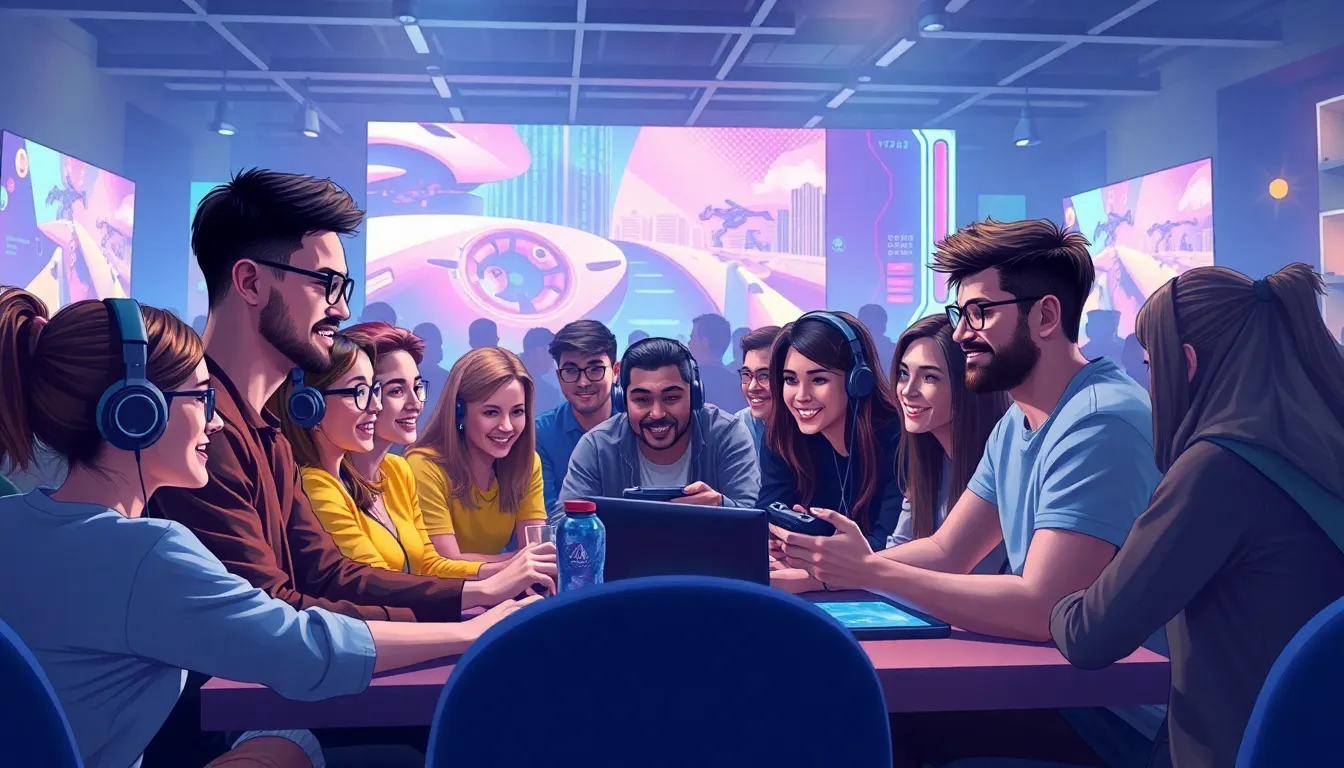In a world where pixels and blockchain collide, web3 game development companies are rewriting the rules of play. Gone are the days of merely pressing buttons; now players can truly own their digital treasures. Imagine leveling up not just your character but your wallet too!
Web3 Game Development Company
Web3 game development represents a significant advancement in the gaming sector. This approach utilizes blockchain technology to provide players with true ownership of digital assets. Game developers create decentralized experiences where players’ actions have real-world financial implications.
Decentralization allows players to trade, sell, or upgrade in-game assets without intermediaries. Players gain the ability to convert their gaming achievements into tangible value. This model shifts the focus from mere entertainment to a potentially profitable endeavor.
Smart contracts play a crucial role in ensuring trust and transparency within these games. Developers implement these self-executing contracts to automate transactions, reducing the chances of fraud. Players can engage with the game economy confidently, knowing the rules are enforced impartially.
Engagement continues to grow as players seek immersive worlds where they can interact with other users. Multiplayer dynamics enhance community building, enabling players to collaborate or compete for rewards.
In addition, unique selling points emerge, such as play-to-earn mechanics. These attract a broader audience, as players now have financial incentives to invest their time and skills.
Web3 game development focuses on user experience equal to the rewards generated. Successful companies in this space prioritize community input and foster ongoing interaction. As a result, this evolving sector challenges the conventions of traditional gaming, redefining the player experience and ownership.
Key Features of Web3 Games

Web3 games introduce compelling features that reshape gaming experiences. This section highlights critical aspects such as decentralization and player ownership.
Decentralization
Decentralization stands at the heart of web3 games. Game assets reside on blockchain networks, eliminating centralized control. Players engage directly with the game environment, fostering freedom and creativity. Developers create ecosystems where every participant contributes to governance and development. Decentralized networks enhance security, making hacking or fraud challenging. Community-driven decisions shape the evolution of the game, allowing for diverse input and innovative updates. In such an ecosystem, players hold significant power, leading to a more inclusive gaming space.
Player Ownership
Player ownership transforms how individuals interact with games. NFTs represent in-game assets, granting true ownership to players. These assets allow for trading, selling, or upgrading in secondary markets. When players invest time and resources, they earn tangible rewards. Game developers design experiences that recognize player contributions, enhancing engagement and retention. Ownership over digital assets cultivates a sense of pride and investment. Web3 games prioritize transparency, ensuring players understand the value of what they own. This shift from traditional models fosters a deeper connection between players and their assets.
Choosing the Right Web3 Game Development Company
Selecting a web3 game development company requires careful consideration of various factors. Focus on those that align with your specific project needs and goals.
Experience and Expertise
Look for companies with extensive experience in blockchain technology and game development. Their expertise in smart contracts and decentralized systems emphasizes security and efficiency. Projects should showcase their ability to innovate within the web3 landscape, revealing a deep understanding of the gaming industry. Identify developers proficient in creating immersive experiences and integrating play-to-earn mechanics. Skilled teams enhance user engagement and retention through user-friendly interfaces and community-driven designs.
Portfolio and Previous Projects
Review the portfolios of prospective companies for insights into their capabilities. Examine their previous projects to assess quality and creativity. Successful launches and high user ratings indicate a firm’s proficiency in delivering appealing games. Query the diversity of their projects; a broad range often reflects adaptability and innovation in addressing different gaming genres. Additionally, check for case studies showcasing meaningful user feedback or engagement, as these highlight their effectiveness in fostering player ownership and community interaction.
Technologies Used in Web3 Game Development
Web3 game development leverages various technologies, driving innovation in player ownership and decentralized experiences.
Blockchain Platforms
Ethereum, Binance Smart Chain, and Polygon serve as core blockchain platforms in web3 game development. These platforms offer robust capabilities for deploying smart contracts and managing decentralized applications. Ethereum remains the most popular choice, supporting a vast ecosystem of dApps. Binance Smart Chain provides faster transaction speeds and lower fees, making it attractive for developers. Polygon enhances scalability and interoperability, allowing games to interact with multiple blockchains. Adoption of these platforms allows developers to create immersive experiences, enabling true asset ownership and community involvement.
Game Engines and Tools
Unity and Unreal Engine stand out as significant game engines used in web3 game development. Unity’s flexibility supports 2D and 3D games, making it a favorite for developers. Its compatibility with blockchain SDKs enables seamless integration of web3 elements. Unreal Engine provides stunning graphics and powerful tools for creating complex gaming environments. Certain tools, like OpenSea SDK and Moralis, facilitate NFT integration and backend support, enhancing user experiences. Combining these engines with blockchain technology instills creativity and innovation in the gaming ecosystem.
Trends in Web3 Game Development
Web3 game development is revolutionizing the gaming industry through innovative trends that redefine player engagement and ownership. Players increasingly participate in decentralized ecosystems, enabling genuine asset ownership and financial opportunities.
Play-to-Earn Models
Play-to-earn models are gaining traction, allowing players to monetize their gaming experiences. Through these models, players earn in-game rewards that can be exchanged for cryptocurrencies or NFTs. Financial incentives motivate deeper engagement and broaden player demographics. Many gamers appreciate the chance to transform leisure time into potential income. Players no longer focus solely on entertainment; they can pursue financial benefits while enjoying immersive gameplay.
NFTs in Gaming
NFTs are transforming how players interact with digital assets in games. Players possess unique in-game items represented as NFTs, enabling true ownership and transferability. This shift enhances the value of assets, as players can buy, sell, or trade based on demand. Digital collectibles gain significance, further engaging communities around games. Activating marketplace integrations facilitates simplified transactions, promoting vibrant player economies. Collectors and players experience heightened satisfaction through this innovative ownership model, ultimately driving retention and engagement.
Conclusion
The rise of web3 game development companies is revolutionizing the gaming landscape. By empowering players with true ownership of digital assets and creating decentralized experiences, these companies are reshaping how gamers interact with their environments. The integration of blockchain technology not only enhances security and transparency but also fosters vibrant player economies.
As the industry continues to evolve, choosing the right web3 game development partner becomes crucial. Companies with a strong grasp of blockchain and game development can help bring innovative ideas to life. With the potential for play-to-earn models and immersive multiplayer environments, the future of gaming looks promising, offering exciting opportunities for players and developers alike.


